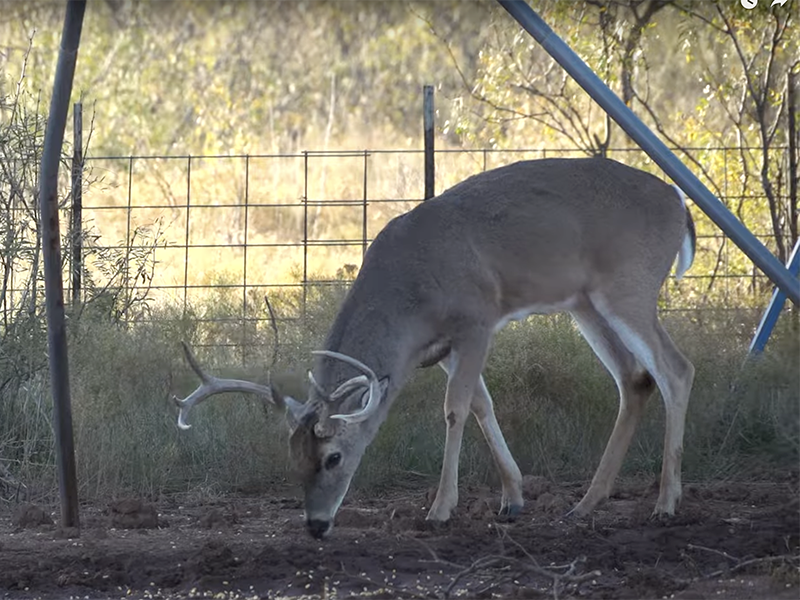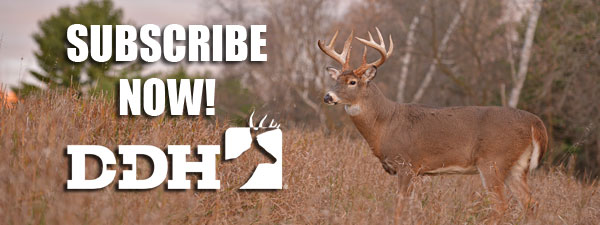Have the 20+ years of crying wolf on CWD finally caught up to deer managers across North America? With baiting back in play for numerous states, it appears that just might be the case.
Tennessee
It will be legal to hunt over bait in Tennessee on private land once the state agency establishes its rules by a deadline of Aug. 1, 2026. While baiting had been legal (except in CWD counties), hunting within 250 yards of it was prohibited until at least 10 days from the time all evidence of any bait had been removed.

Tennessee’s new law, which takes effect on July 1, 2025, but will not be implemented until 2026, allows hunting of white-tailed deer and wild-appearing swine over bait on privately owned or leased land with a special bait privilege license. This license, which will cost $50 for residents and $100 for nonresidents, is required to hunt over bait, and it applies specifically to those animals. According to Tennessee Senate Bill 0869, all hunters in a hunting party who hunt over bait must purchase this license, even if they are otherwise exempt from hunting license requirements, including landowners and those under 13 years of age. The state wildlife agency will have the authority to suspend baiting privileges without refund if necessary to prevent disease spread among wildlife populations, and must establish rules by Aug. 1, 2026, specifying what constitutes acceptable bait, the amount of bait that can be used, and the conditions for using the license. Hunting over bait will not be allowed until the 2026 hunting season, once rules have been established.
Key details:
- Bait Privilege License: Hunters must purchase this license to hunt over bait.
- Private Land Only: This new law applies to privately owned and leased land, not public lands.
- Target Animals: The bait privilege license allows hunting of white-tailed deer and wild-appearing swine.
Michigan
Proposed to overturn ban on baiting in the Lower Peninsula:
In Michigan, there have been several recent proposals to allow deer baiting, which is currently banned in the Lower Peninsula. These proposals aim to reinstate the practice of using bait to attract deer, primarily for hunting purposes, during open hunting seasons. The bills typically require a baiting license and a valid deer hunting license, with limitations on the amount of bait distributed.
Here’s a more detailed look at the proposals:
- House Bill 4445 (introduced by Rep. Wortz):
- This bill would allow hunters to distribute, deposit, or tend feed in areas frequented by deer, effectively legalizing baiting during open seasons. It would also define what constitutes baiting and feeding, and would codify baiting allowances into statute, potentially sidestepping the Natural Resources Commission’s authority.
- House Bill 4191 (introduced by Rep. Beson):
- This bill also proposes to allow baiting, with specific requirements for a baiting license and a valid deer hunting license. It would allow up to five gallons of bait per day at each bait site.
- Senate Bill 65 (introduced by Sen. Hoitenga):
- This bill seeks to amend the Natural Resources and Environmental Protection Act to allow regulated deer baiting in the Lower Peninsula. It also includes provisions for a baiting license and a valid deer hunting license.
- Common Elements:
- All the proposals generally aim to allow regulated baiting during open hunting seasons, requiring a baiting license and a valid deer hunting license. They also typically limit the amount of bait distributed at each site.
- Rationale for the Proposals:
- Proponents of the bills argue that they would restore a common hunting tactic, address deer overpopulation concerns, and reduce deer-related vehicle collisions.
North Dakota
In April, Senate Bill 2137 was signed into law which allows hunting over bait on private property. While it has always been legal to place bait anywhere in the state, it was previously illegal to hunt over bait in a hunting unit with a CWD detection, or within 25 miles of a detected unit. The bill now allows hunting around feed in the once-restricted units.
SB 2137 reads: “Hunting big game animals using supplemental feed not prohibited or restricted. The department may not adopt a rule or implement a policy prohibiting or restricting the use of supplemental feed on private property for hunting a big game animal.”
Alabama
Once illegal across the state, baiting was permitted in Alabama beginning in 2019.
In Alabama, it is legal to hunt white-tailed deer and feral hogs over bait, provided hunters possess a valid bait privilege license, which costs $18.05 for residents and $61.85 for non-residents. This license allows hunters to use bait with no distance restrictions on private or leased land, but baiting remains illegal on public lands, including Wildlife Management Areas (WMAs) and national forests. The bait privilege license is required in addition to other hunting licenses and must be renewed annually.
Key points about baiting in Alabama:
- Bait Privilege License: Hunters must obtain a bait privilege license to hunt over bait, which costs $18.05 for residents and $61,85 for non-residents.
- Private Land Only: Baiting is only permitted on privately owned or leased land.
- No Distance Restrictions: The license allows hunters to use bait with no distance restrictions.
- No Exemptions: The bait privilege license is required of all hunters, regardless of age, and there are no exemptions for age, property ownership, or lifetime license holders.
- Annual Renewal: The license must be renewed annually and expires on Aug. 31.
- Illegal on Public Lands: Baiting is prohibited on public lands, including WMAs and national forests.
- No Restrictions on Bait: There are no restrictions on what can be used as bait, according to Outdoor Alabama.

